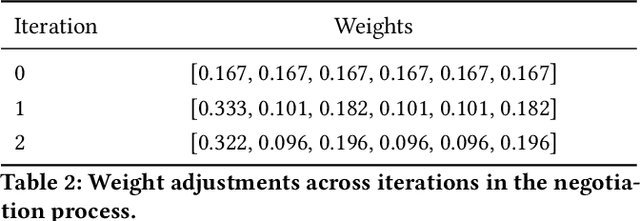Shin Koseki
Co-Producing AI: Toward an Augmented, Participatory Lifecycle
Jul 31, 2025Abstract:Despite efforts to mitigate the inherent risks and biases of artificial intelligence (AI) algorithms, these algorithms can disproportionately impact culturally marginalized groups. A range of approaches has been proposed to address or reduce these risks, including the development of ethical guidelines and principles for responsible AI, as well as technical solutions that promote algorithmic fairness. Drawing on design justice, expansive learning theory, and recent empirical work on participatory AI, we argue that mitigating these harms requires a fundamental re-architecture of the AI production pipeline. This re-design should center co-production, diversity, equity, inclusion (DEI), and multidisciplinary collaboration. We introduce an augmented AI lifecycle consisting of five interconnected phases: co-framing, co-design, co-implementation, co-deployment, and co-maintenance. The lifecycle is informed by four multidisciplinary workshops and grounded in themes of distributed authority and iterative knowledge exchange. Finally, we relate the proposed lifecycle to several leading ethical frameworks and outline key research questions that remain for scaling participatory governance.
Negotiative Alignment: Embracing Disagreement to Achieve Fairer Outcomes -- Insights from Urban Studies
Mar 16, 2025



Abstract:Cities are not monolithic; they are arenas of negotiation among groups that hold varying needs, values, and experiences. Conventional methods of urban assessment -- from standardized surveys to AI-driven evaluations -- frequently rely on a single consensus metric (e.g., an average measure of inclusivity or safety). Although such aggregations simplify design decisions, they risk obscuring the distinct perspectives of marginalized populations. In this paper, we present findings from a community-centered study in Montreal involving 35 residents with diverse demographic and social identities, particularly wheelchair users, seniors, and LGBTQIA2+ individuals. Using rating and ranking tasks on 20 urban sites, we observe that disagreements are systematic rather than random, reflecting structural inequalities, differing cultural values, and personal experiences of safety and accessibility. Based on these empirical insights, we propose negotiative alignment, an AI framework that treats disagreement as an essential input to be preserved, analyzed, and addressed. Negotiative alignment builds on pluralistic models by dynamically updating stakeholder preferences through multi-agent negotiation mechanisms, ensuring no single perspective is marginalized. We outline how this framework can be integrated into urban analytics -- and other decision-making contexts -- to retain minority viewpoints, adapt to changing stakeholder concerns, and enhance fairness and accountability. The study demonstrates that preserving and engaging with disagreement, rather than striving for an artificial consensus, can produce more equitable and responsive AI-driven outcomes in urban design.
AI-EDI-SPACE: A Co-designed Dataset for Evaluating the Quality of Public Spaces
Nov 01, 2024



Abstract:Advancements in AI heavily rely on large-scale datasets meticulously curated and annotated for training. However, concerns persist regarding the transparency and context of data collection methodologies, especially when sourced through crowdsourcing platforms. Crowdsourcing often employs low-wage workers with poor working conditions and lacks consideration for the representativeness of annotators, leading to algorithms that fail to represent diverse views and perpetuate biases against certain groups. To address these limitations, we propose a methodology involving a co-design model that actively engages stakeholders at key stages, integrating principles of Equity, Diversity, and Inclusion (EDI) to ensure diverse viewpoints. We apply this methodology to develop a dataset and AI model for evaluating public space quality using street view images, demonstrating its effectiveness in capturing diverse perspectives and fostering higher-quality data.
From Efficiency to Equity: Measuring Fairness in Preference Learning
Oct 24, 2024



Abstract:As AI systems, particularly generative models, increasingly influence decision-making, ensuring that they are able to fairly represent diverse human preferences becomes crucial. This paper introduces a novel framework for evaluating epistemic fairness in preference learning models inspired by economic theories of inequality and Rawlsian justice. We propose metrics adapted from the Gini Coefficient, Atkinson Index, and Kuznets Ratio to quantify fairness in these models. We validate our approach using two datasets: a custom visual preference dataset (AI-EDI-Space) and the Jester Jokes dataset. Our analysis reveals variations in model performance across users, highlighting potential epistemic injustices. We explore pre-processing and in-processing techniques to mitigate these inequalities, demonstrating a complex relationship between model efficiency and fairness. This work contributes to AI ethics by providing a framework for evaluating and improving epistemic fairness in preference learning models, offering insights for developing more inclusive AI systems in contexts where diverse human preferences are crucial.
 Add to Chrome
Add to Chrome Add to Firefox
Add to Firefox Add to Edge
Add to Edge